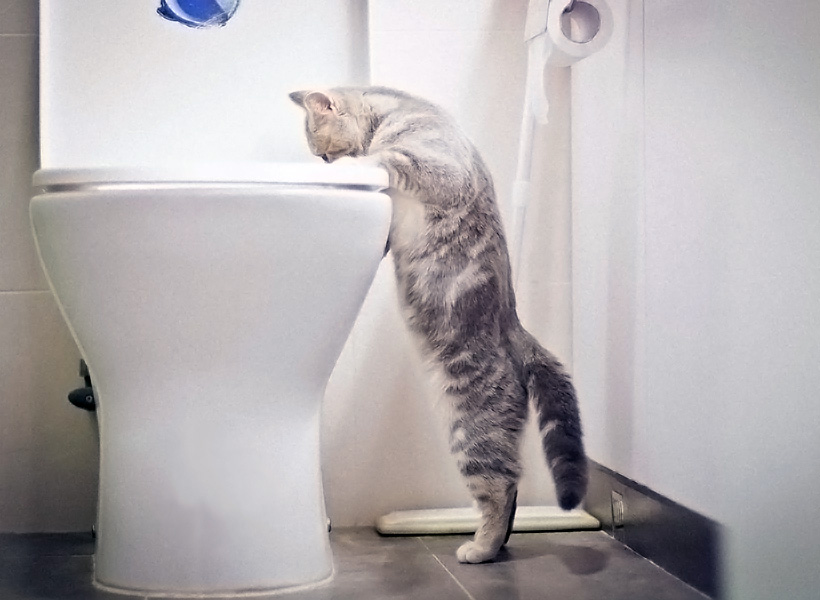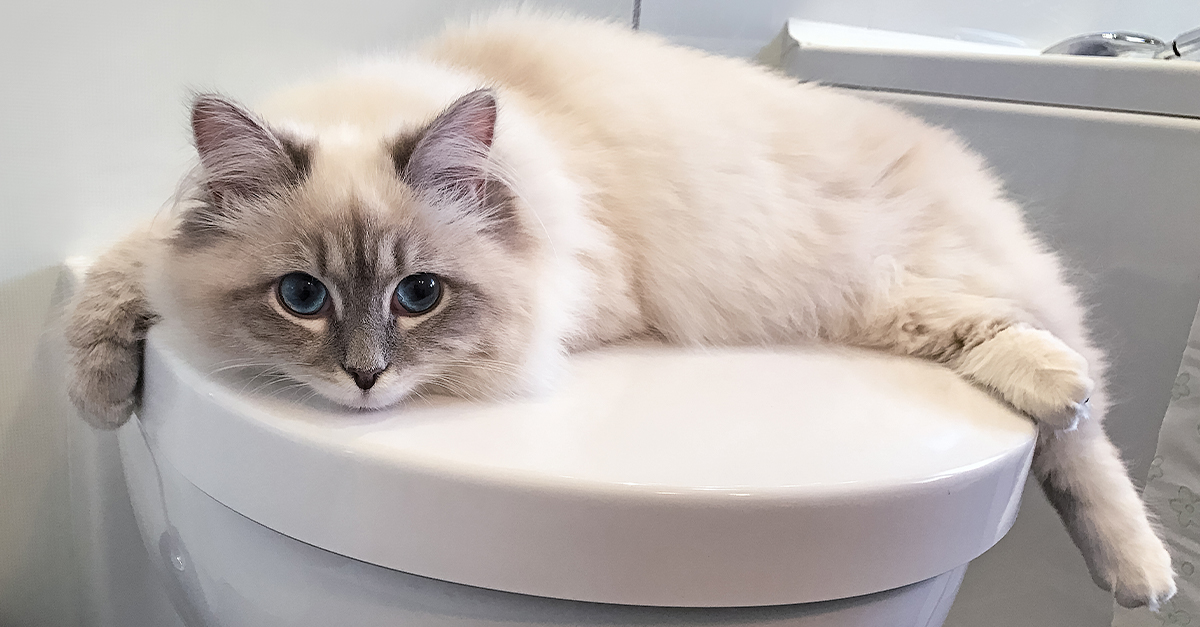Why You Should Never Flush Cat Poop Down Your Toilet - Important Information
Why You Should Never Flush Cat Poop Down Your Toilet - Important Information
Blog Article
How do you really feel with regards to How to Dispose of Cat Poop and Litter Without Plastic Bags?

Introduction
As pet cat proprietors, it's important to bear in mind just how we get rid of our feline close friends' waste. While it might seem hassle-free to purge pet cat poop down the commode, this technique can have destructive consequences for both the atmosphere and human wellness.
Environmental Impact
Flushing pet cat poop presents damaging pathogens and parasites right into the water supply, presenting a considerable risk to aquatic ecological communities. These impurities can adversely impact marine life and compromise water top quality.
Health and wellness Risks
Along with environmental worries, flushing cat waste can also pose wellness dangers to humans. Pet cat feces may include Toxoplasma gondii, a parasite that can trigger toxoplasmosis-- a possibly serious disease, specifically for pregnant ladies and people with damaged immune systems.
Alternatives to Flushing
Thankfully, there are safer and more responsible methods to throw away cat poop. Consider the following options:
1. Scoop and Dispose in Trash
The most usual approach of getting rid of feline poop is to scoop it right into a biodegradable bag and toss it in the garbage. Make sure to utilize a specialized litter scoop and dispose of the waste quickly.
2. Usage Biodegradable Litter
Opt for naturally degradable cat clutter made from materials such as corn or wheat. These trashes are eco-friendly and can be securely dealt with in the garbage.
3. Hide in the Yard
If you have a backyard, think about burying pet cat waste in a designated area away from vegetable gardens and water sources. Make certain to dig deep enough to stop contamination of groundwater.
4. Install a Pet Waste Disposal System
Buy an animal waste disposal system especially created for feline waste. These systems use enzymes to break down the waste, reducing smell and environmental effect.
Verdict
Liable pet possession prolongs beyond offering food and shelter-- it also entails correct waste administration. By refraining from flushing feline poop down the commode and selecting different disposal methods, we can lessen our environmental footprint and secure human wellness.
Why Can’t I Flush Cat Poop?
It Spreads a Parasite
Cats are frequently infected with a parasite called toxoplasma gondii. The parasite causes an infection called toxoplasmosis. It is usually harmless to cats. The parasite only uses cat poop as a host for its eggs. Otherwise, the cat’s immune system usually keeps the infection at low enough levels to maintain its own health. But it does not stop the develop of eggs. These eggs are tiny and surprisingly tough. They may survive for a year before they begin to grow. But that’s the problem.
Our wastewater system is not designed to deal with toxoplasmosis eggs. Instead, most eggs will flush from your toilet into sewers and wastewater management plants. After the sewage is treated for many other harmful things in it, it is typically released into local rivers, lakes, or oceans. Here, the toxoplasmosis eggs can find new hosts, including starfish, crabs, otters, and many other wildlife. For many, this is a significant risk to their health. Toxoplasmosis can also end up infecting water sources that are important for agriculture, which means our deer, pigs, and sheep can get infected too.
Is There Risk to Humans?
There can be a risk to human life from flushing cat poop down the toilet. If you do so, the parasites from your cat’s poop can end up in shellfish, game animals, or livestock. If this meat is then served raw or undercooked, the people who eat it can get sick.
In fact, according to the CDC, 40 million people in the United States are infected with toxoplasma gondii. They get it from exposure to infected seafood, or from some kind of cat poop contamination, like drinking from a stream that is contaminated or touching anything that has come into contact with cat poop. That includes just cleaning a cat litter box.
Most people who get infected with these parasites will not develop any symptoms. However, for pregnant women or for those with compromised immune systems, the parasite can cause severe health problems.
How to Handle Cat Poop
The best way to handle cat poop is actually to clean the box more often. The eggs that the parasite sheds will not become active until one to five days after the cat poops. That means that if you clean daily, you’re much less likely to come into direct contact with infectious eggs.
That said, always dispose of cat poop in the garbage and not down the toilet. Wash your hands before and after you clean the litter box, and bring the bag of poop right outside to your garbage bins.
https://trenchlesssolutionsusa.com/why-cant-i-flush-cat-poop/

Do you really like more info about Can You Flush Cat Poop Down The Toilet?? Post a comment directly below. We'd be interested to know your thinking about this write up. We hope that you visit us again soon. If you please take a moment to share this write-up if you enjoyed reading it. I appreciate reading our article about Don’t flush cat feces down the toilet.
Browse Our Site Report this page